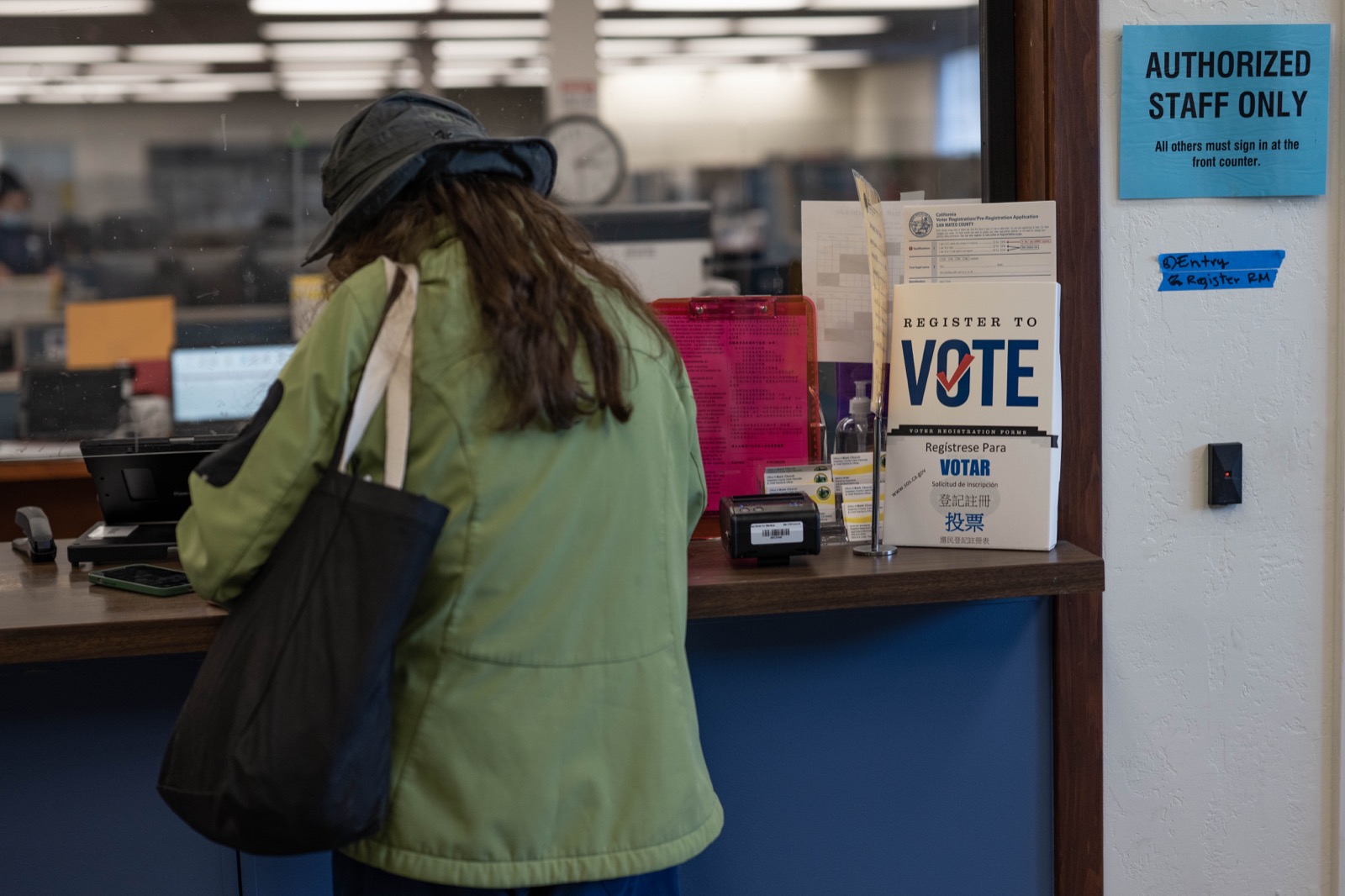
Experts have many definitions of what a constitutional crisis is, however, their greatest concern is focused on American democracy that is preparing for the 2024 electoral processes, where there is still time to correct and defend the community's vote in order to guarantee a legal and effective process.
A constitutional crisis can occur in many ways. It's not really clear what has to happen for one to occur, it can involve when institutions fail or when one of the branches is unwilling to carry out what the court says, among many other reasons, said Aziz Z. Huq, a professor of constitutional law at the U.S. Congress. a briefing held by Ethnic Media Services.
Aziz spoke from his perspective as a lawyer, where constitutional gaps or conflicts are not a crisis, because, he said, they are situations that are omnipresent and that are in the democracy and Constitution of the United States, so to speak of a constitutional crisis, he said, "is to speak of something very drastic."
He explained that the country is not currently experiencing a democratic crisis, as it is always possible to reach worse levels than those currently experienced.
However, for Gloria J. Browne-Marshall, professor of constitutional law at John Jay College (CUNY), The country is experiencing a constitutional crisis in terms of elections, which is a matter of concern in different areas. However, this can be corrected in the Electoral College, said the professor.
2024 Elections: What's at Stake?
Much is expected in the upcoming elections in 2024, since this time the Republican Donald Trump, who already served as president from 2017 to 2021, and is seeking to run for a second term, is in a legal process with federal charges, which calls into question whether his candidacy to once again occupy the Oval Office of the White House is legal, correct or incorrect.
The 14th Amendment to the Constitution prohibits people who have participated in an insurrection against the United States from being candidates, so the question of whether this law also applies to the former president in order to appear on the ballot again is at stake.
Gloria J. Browne-Marshall was clear, stating that the Constitution specifically speaks of insurrection, but not of any other criminal offense.
The professor clarified that throughout the country's history, there have been other people who have run for president with criminal records, even from prison, so any citizen who meets the requirements can run to be president of the United States.
"Before, anyone could put their name forward to run for president and it seemed like it wouldn't matter, but now it's not a 'joke' candidacy and there is a prohibition in the Constitution that makes it likely that one person could win, which could create a political crisis," Browne-Marshall said.
“A lot of people are following Trump based on emotion and not on law or moral character; conservatives have been arguing about the Constitution for years and I don’t see progressives doing that.”
In his turn, Aziz Huq explained that what is now different with Donald John Trump as a candidate, since 2 of the 4 accusations he faces have to do with individuals who are trying to disrupt the democratic process, as well as underestimating people's votes, all under proven circumstances that the former leadertario wants to use power in an undemocratic way.
He also said that it is a big mistake to believe that democracy is perfect, since it has many problems and limitations that are not so easy to defend; which leads to believing that it will get worse in the future, when, currently, it is not at its best.
However, Seth Masket, a professor in the Department of Political Science and director of the Center for American Politics at the University of Denver, commented that Trump is a very competitive candidate who promises things that could weaken democracy, “I think that perhaps Trump is threatening democracy more than the Constitution as such.”
The constitutional aspect should unite communities with laws despite the differences, but the reality is that there is a great discrepancy between what the Constitution says and democracy.
The color of the elections
One issue to consider in the upcoming elections is that the population in the United States is changing and white people are losing power. By 2045, it is estimated that 80 percent of the inhabitants of the American union will be black, which will surely change the future of the country.
The United States has been a multiracial democracy since 1965, and it is more fragile than you might think. “To some extent, a functioning democracy includes one party being willing to lose and being able to accept that there is a next time,” said Seth Masket.
It is not unreasonable to think that the United States is moving into a period where some voices are marginalized, which could lead to elections that are not truly competitive, leading to systemic failure and even violence, said Aziz Hup.
Experts agreed that democracy must also be carried out in the media, as they often skew information, directly impacting what people should or should not know depending on their preferences.
You may be interested in: What do young Latino voters want to hear on the Republican debate stage?

